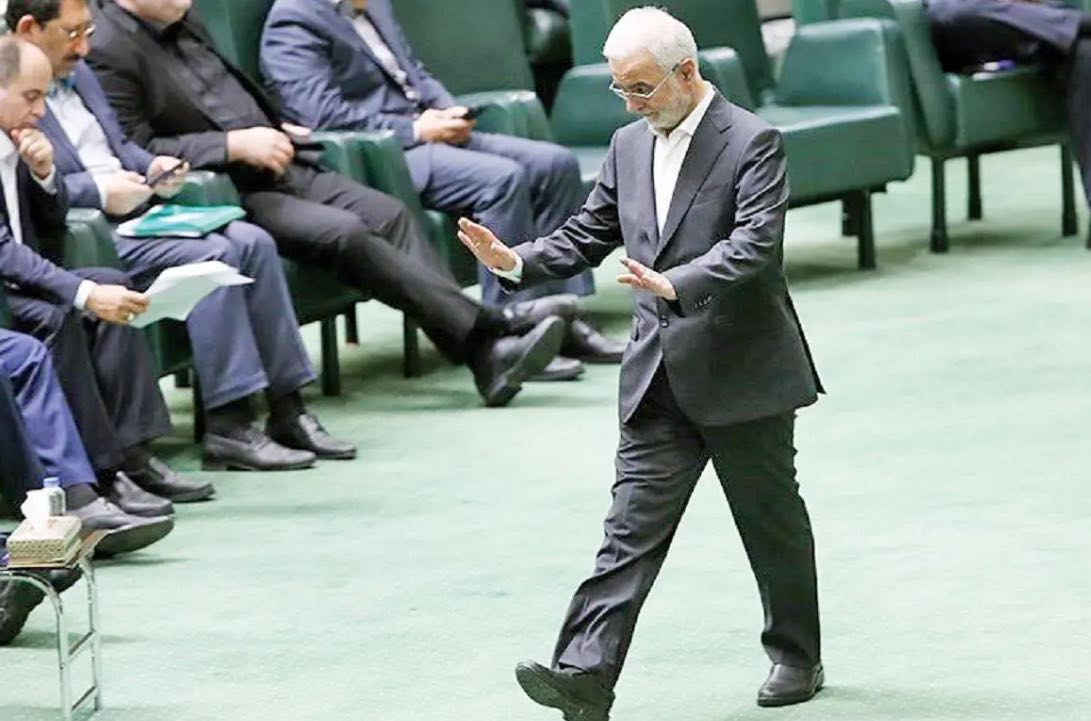Pressure from Representatives on the Government for Appointments
Pressure from representatives on the government for appointments was a topic that emerged after the government announced its slogan of national unity and the cooperation between the parliament and the government. Some representatives, following the vote of confidence they gave to the proposed ministers, publicized this cooperation, although historically, the presence of a non-aligned government and parliament is not unprecedented. A notable example is the fifth parliament chaired by Ali Akbar Nategh-Nouri and the reformist government led by President Mohammad Khatami.
However, now, although only two months have passed since the government took office, it seems that the relationships are becoming strained. This is evident from the statements made these days, which are expressed with intensity against the government and appear more as political venting than genuine criticism.
Let’s not forget that the same parliament recently, by not accepting the resignation of Abdolkarim Hosseinzadeh, practically confirmed this lack of alignment and the possibility of non-cooperation.
This happened in a situation where Hosseinzadeh’s appointment as Vice President was a major effort by the government to create national unity and reduce dissatisfaction among the Sunni citizens of Iran in the civic domain and was part of fulfilling an electoral promise by Masoud Pezeshkian. Although representatives cited reasons that, based on subsequent reactions from various figures, were not widely accepted, and rarely in the past has the parliament blocked a representative’s activity in another position by not accepting their resignation.
Examples include Alireza Zakani’s resignation to take the position of mayor despite many criticisms and objections regarding the legality of his appointment in the eleventh parliament, Amirhossein Ghazizadeh Hashemi’s resignation to take the presidency of the Martyrs Foundation in the eleventh parliament, Kazem Jalali’s resignation to become Iran’s ambassador to Russia in the tenth parliament, Dariush Esmaeili’s resignation to take the position of Deputy Minister of Industry, Mines, and Trade in the ninth parliament, Mehdi Sanaei’s resignation to become Iran’s ambassador to Russia in the eighth parliament, Seyed Mohammad Reza Mirtajaldini’s resignation to take the position of Deputy for Parliamentary Affairs in the eighth parliament, and Seyed Ahmad Mousavi’s resignation to take the position of Deputy for Legal and Parliamentary Affairs of the President in the seventh parliament, all of which were accepted by the parliament, resulting in the parliament not obstructing the government, at least at the beginning.
However, the parliament’s lack of cooperation with the government is not limited to this issue. Recently, there have been discussions about parliamentary interference in government appointments, especially in the area of appointing governors. For example, Azar Mansouri, the head of the Reformist Front, mentioned in an interview that some parliamentary representatives are pressuring the fourteenth government in new appointments, especially in the governorships, contrary to the principles of the constitution and the rules of separation of powers. Whatever this behavior is called, it is not unity. It is the new government’s legal right to appoint managers aligned with its discourse.
There are also rumors around this issue that have caused concern among others. Reformist political activist Hassan Rasouli has said about the possibility of such demands that any kind of share-seeking demand from parliamentary representatives, stating that the executive branch must choose governors and managers according to their wishes, is against the law based on Article 57 of the Constitution.
The government must prevent such interventions with a decisive approach based on legal principles and emphasize the independence of branches. If a representative expects that the governor of their constituency should be appointed according to their wishes, they must be prepared to participate effectively in legal processes.
This smart and distinctive approach can help create coordination between the three branches at various levels of the country’s divisions.
Any interference that disrupts this logical process, in my opinion, will lead to chaos and disruption in the country’s governance system.
Interference by representatives in the appointment of governors and the activities of the executive branch is not a new story for this government and parliament. The Javan newspaper addressed this issue in September 2020, stating at the beginning of its article that the entry of parliamentary representatives into executive work is dangerous.
This is a warning from the leader of the Islamic Republic, Ayatollah Khamenei, to the parliamentary representatives.
However, now whispers, tweets, and behind-the-scenes conversations are sometimes heard, indicating indirect pressure and interference by some representatives on the government for dismissals and appointments in the new government. Some representatives, however, pay little attention to the leader’s warning and advice, pursuing a different path.
This issue is more pronounced in the matter of governors and the Ministry of Interior, and the leader, knowing this from experience, specifically mentioned these positions in his speech.
Now, once again, it seems that such interferences have arisen, causing concern among some figures who are somewhat aware of the government’s activities. It appears that what is happening goes beyond mere comments and advice from representatives and provincial assemblies to assist the government in appointing suitable candidates, as some have mentioned.
The separation of powers and the interaction between the government and parliament are two topics that representatives and statesmen must pay attention to.
According to our constitution, and based on that wing of republicanism, which is a symbol of democracy in the political sphere, none of the branches should have influence and authority over the other. The practical transformation of provincial assemblies into a leverage of pressure on statesmen in appointing individuals to various positions is a problem that seemingly all governments have to grapple with.
Therefore, in performing legal duties, it is expected that the various branches take steps to maintain the separation of powers and strive to strengthen it.

